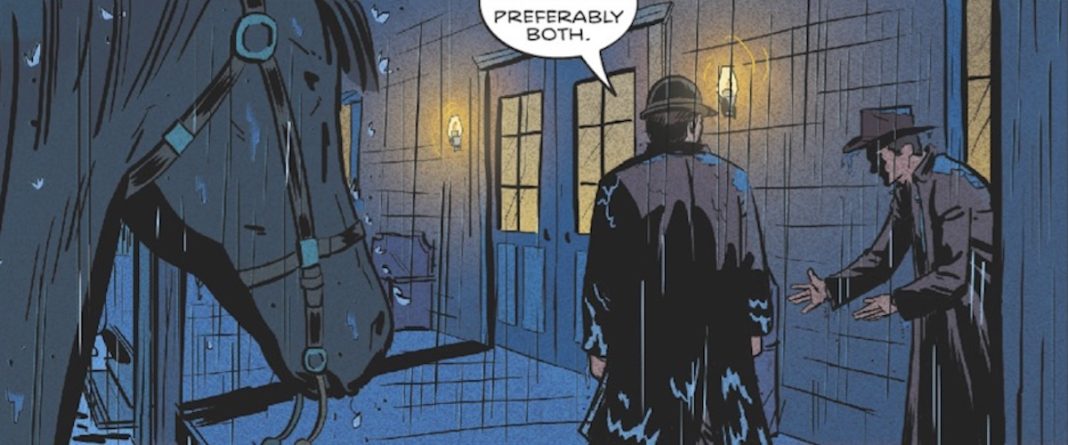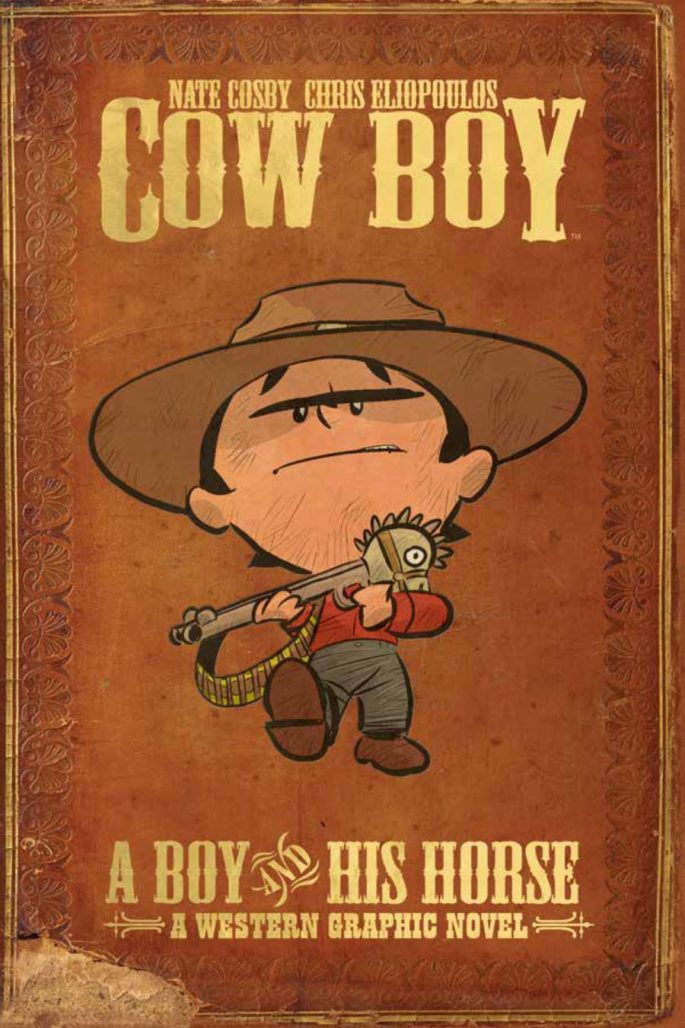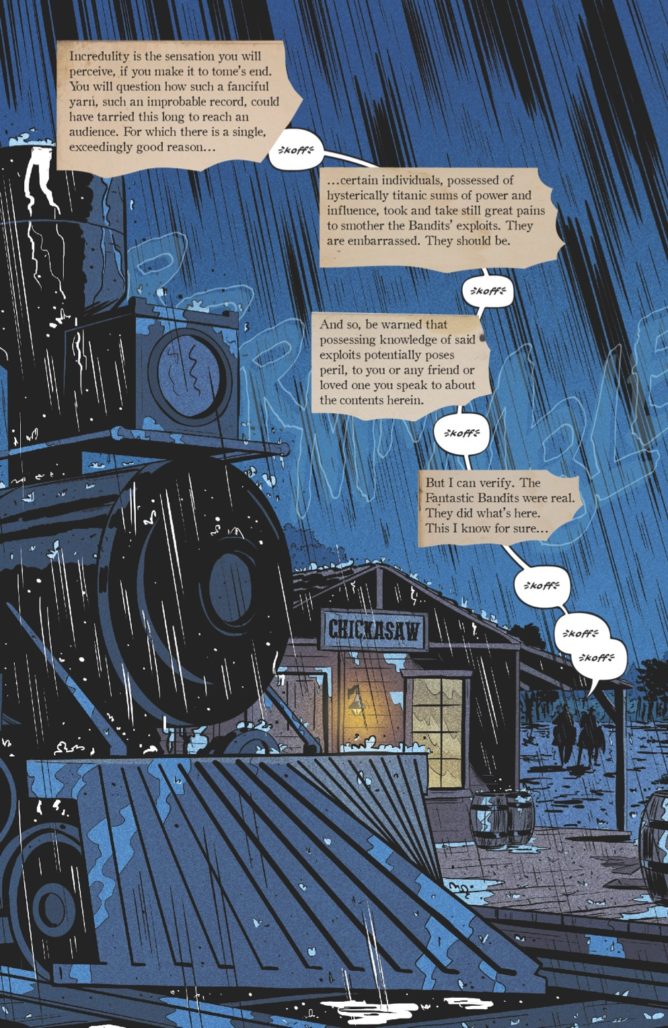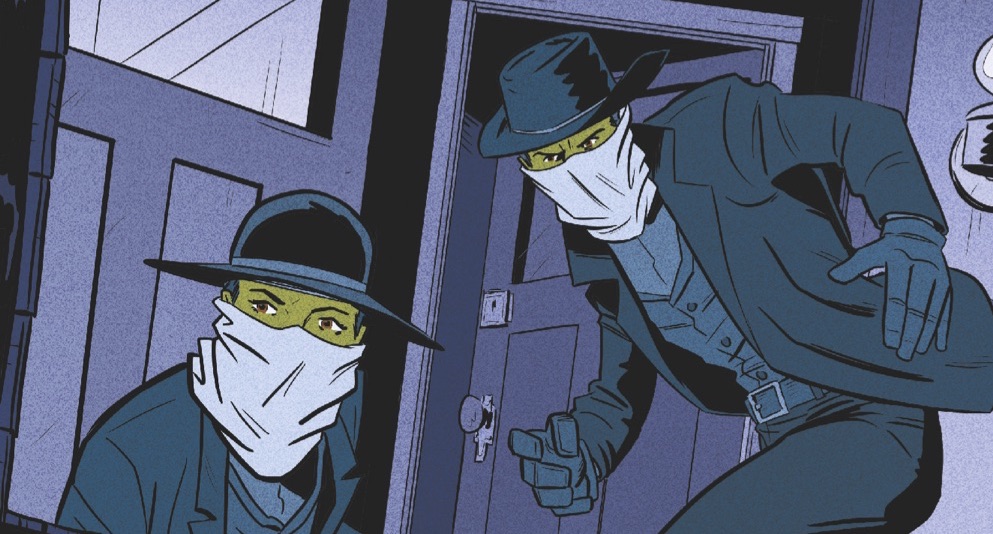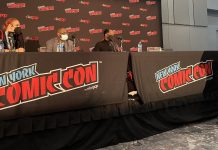Nate Cosby was one of my very first interviews for The Beat eight years ago. It’s been almost that long since he wrote creator-owned comics. He’s stayed busy editing for publishers like Dynamite and occasionally writing licensed work such as Prince Valiant. But last week he released two new comics through Gumroad, Happy Hour and Fantastic Bandits Chapter 2. I was excited to interview Nate again and ask him about what prompted his return to comics, why he chose to sell his books through Gumroad, and much more.
It’s been some time since the release of books like Cow Boy. What makes now the time to return to creator-owned comics?
Ideas have been piling up! Felt like time to get ‘em out there.
How did you decide your collaborators?
For creator-owned projects, I only want to collaborate with people that are passionate about what we’re making, and whose storytelling interests intertwine with mine.
So for Jacob Edgar, I knew he was interested in a long-form western. The idea to work together came first, and then Fantastic Bandits got shaped around that. It’s been so cool to see Jacob push his art into new places.
Then we caught a huge lucky break on Bandits, getting Chris O’Halloran on board for colors…he has some experience with westerns, so we knew he’d bring something textural and special, and help differentiate the shuffling timeline stuff in the story. And Hassan Otsmane-Elhaou is a damn lettering dynamo (we were fortunate to get him BEFORE he won an Eisner…I’m sure he wouldn’t answer our calls if we tried to get him today).
For Happy Hour, I had this small, short story in my head, and Ron Salas was the only artist I had in mind. He’s so great at capturing tone and figuring out intriguing angles…which is invaluable for such a talky story that devolves into carnage. And I wanted unique balloon shapes and outlines, and interesting SFX choices, so Ariana Maher was my first and only choice to letter.
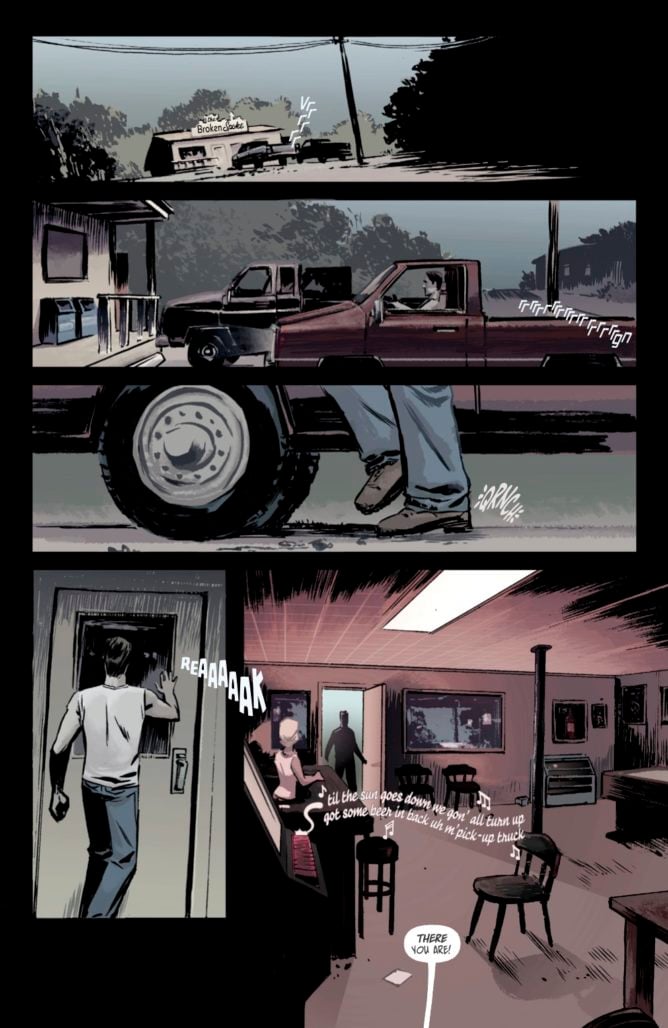
Why did you choose to publish your comics independently, rather than through a publisher?
I deal with the grind of monthly publishing every day, and I love it. But for writing, it’s a personal thing I like to do at my own pace, find the right creative partners, and have it be however long or short we feel like. That’s not to say that I wouldn’t consider partnering with a publisher on creator-owned stuff. It’d just have to be the right situation. In the meantime, I plan to throw stuff up online whenever it’s ready to be seen
What appeals to you about Gumroad as a platform?
It’s sooooooooooooooooooooooooooooooooo easy. You create an account, you load your comic up, you pick the price, and it’s up there for everybody to see.
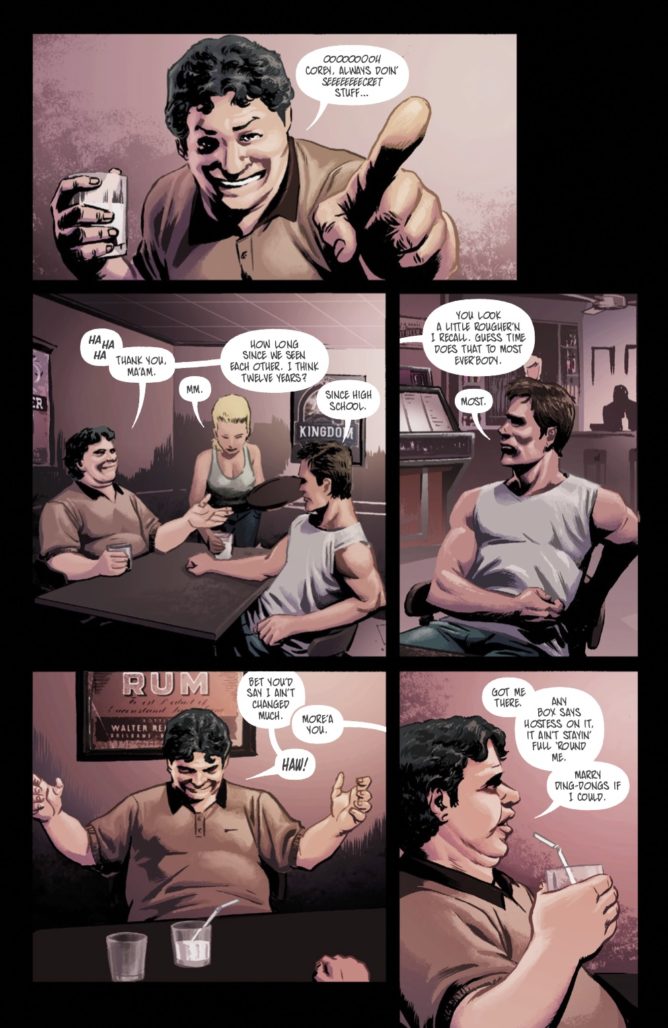
Do you have plans for the comics you’ve released through Gumroad to appear in print at some point?
It’s not a priority at this point. When we’re done with the first volume of Fantastic Bandits, it’d be great to publish it as a GN. But we’re focused on the story at the moment.
Is there an overarching publishing plan for your creator-owned works?
My directive is “What would I want to read?” I want to indulge in the kinds of stories and genres I really care about, to challenge myself to bring something worthy to my creative partners so that they’re excited to be a part of the project, and to try to be (relatively) consistent about releasing stuff.
As far as further planning…I’m a story nerd and a genre omnivore, and I can’t help but bounce around settings and tones. So in addition to westerns and southern-tinged horror, I’m working on an early 1900s Parisian mystery with Marc Laming, a talking animals comedy fairy tale with Jennifer Meyer, a Jane Austen-inspired rom-com, and a few others that are still taking shape.
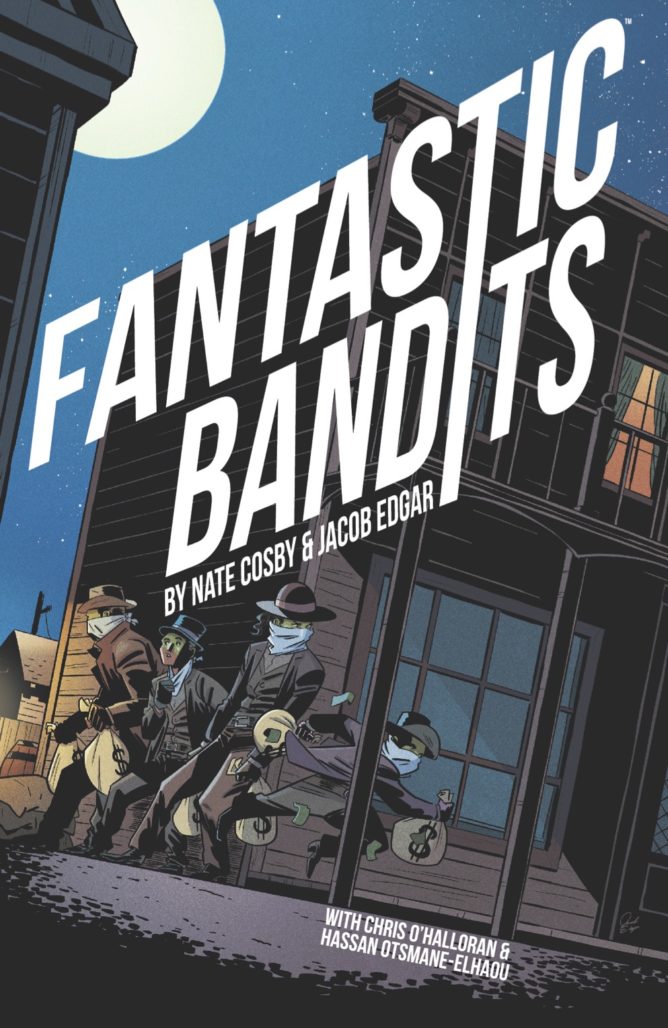
When should readers expect Chapter 2 of Fantastic Bandits?
Chapter II is out today! “The Travails Of Duke Mordacier Stuckerbear.”
Then there’ll be a little gap, because Jacob Edgar will be busy drawing other stuff the next few months. But more’s coming! The first volume should be about 100 pages, something like five or six chapters.
What appeals to you about the Western genre?
Everything. The loquaciousness, the brevity, the lawlessness, the sense of adventure, being able to poke holes in the generic “white hat/black hat” thing, as well as poking holes in the “anti-hero” thing. It can feel simultaneously huge and universally representational, and then small and personal and intimate.
Short-length comics aren’t seen very often from major comic book publishers. But, between Happy Hour and the Storyteller anthologies you edited, you’re clearly a fan of them. What appeals to you about the format?
I like telling the story you want to tell, and having it be how long it needs to be.
Most monthly comics are 20-22 pages per issue. Length comes first, story second. But if I’ve got a story about two enemies from high school meeting at a bar for happy hour, I don’t need 22 pages. I need 12. And it’s mine, so nobody can make me pad it out.
Why are they such a rarity in mainstream comics?
Because every month, there’s a 20-22 page tank that’s got to be filled to the brim. If you shorten or lengthen that too much, you probably change the price point…and constantly-changing price points isn’t good business sense, for publishers or retailers.
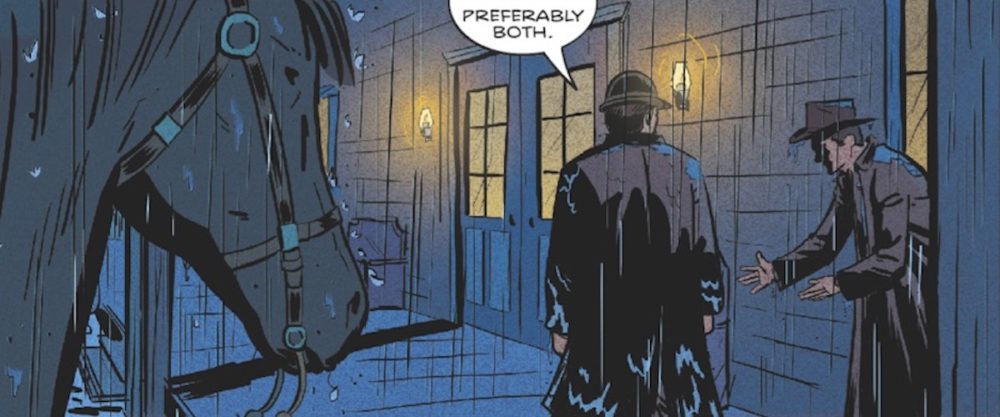
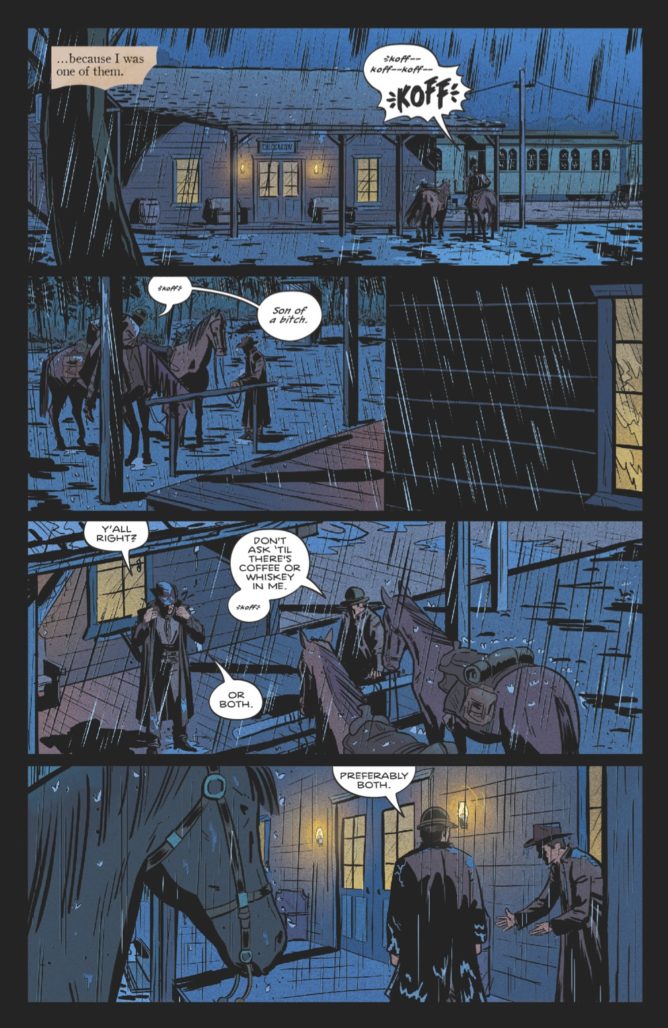
I really only write with an artist in mind, so being an editor directly informs that method, because as an editor, I’m lucky to have contact with lots of incredibly talented artists that might want to work on something together, or know of other artists looking to create something.
And as far as the actual writing, I think editing has concurrently made me a better writer, and made it challenging to write. Because…
- I’m a full-time editor. That torpedoes any sort of consistent daytime writing schedule.
- When you edit all day, you don’t necessarily want to spend your evenings writing your own stuff. Downtime is important, to recharge the creative batteries.
- I edit scripts from some of the best writers in the business. So I inevitably compare my work with theirs. Which is…daunting.
- At the same time, reading great scripts by great writers is an excellent way to understand what makes a story work.
- I like to think that writing helps make me a better editor. Because if I give a note on someone else’s script, and then I catch myself doing the same type of thing that should be noted in my own script…that gives me an understanding of where the writer was coming from, and helps me define why there was a note in the first place.
Go buy Nate’s comics on Gumroad, they’re great, and follow him on Twitter @NateCosBOOM.


